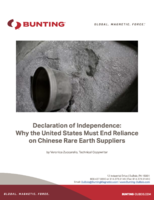Medical Glove Allergen Standard developed by ASTM committee.
Press Release Summary:
Standard D7558, Test Method for Colorimetric/Spectrophotometric Procedure to Quantify Extractable Chemical Dialkyldithiocarbamate, Thiuram, and Mercaptobenzothiazole Accelerators in Natural Rubber Latex and Nitrile Gloves, was developed by Subcommittee D11.40 on Consumer Rubber Products. It will allow rubber glove manufacturers to monitor level of residual chemicals in their end products and potentially make manufacturing changes to reduce allergen levels.
Original Press Release:
New Medical Glove Allergen Standard Developed by ASTM Committee on Rubber
W. CONSHOHOCKEN, Pa., October 7, 2009-Residual accelerator chemicals in medical gloves appear to be a leading cause of allergic contact dermatitis in health care workers. A new ASTM International standard allows rubber glove manufacturers to monitor the level of residual chemicals in their end products and to potentially make manufacturing changes to reduce allergen levels.
The new standard, D7558, Test Method for Colorimetric/Spectrophotometric Procedure to Quantify Extractable Chemical Dialkyldithiocarbamate, Thiuram, and Mercaptobenzothiazole Accelerators in Natural Rubber Latex and Nitrile Gloves, was developed by Subcommittee D11.40 on Consumer Rubber Products, part of ASTM International Committee D11 on Rubber.
Donald Beezhold, National Institute for Occupational Safety and Health, and a D11 member, says that D7558 will be useful to medical glove manufacturers but also to dermatologists and end users of medical gloves.
"The reason this standard is important is because there is a continuing problem of allergic reactions to medical gloves," says Beezhold. "This test should help manufacturers monitor and lower residual levels in their products."
ASTM International standards can be purchased from Customer Service (phone: 610-832-9585; service@astm.org) or at www.astm.org.
For technical information, contact Donald Beezhold, NIOSH, Morgantown, W.Va. (phone: 304-285-5963; zec1@cdc.gov). Committee D11 will meet Dec. 7-10 during December committee week in Atlanta, Ga.
ASTM International welcomes and encourages participation in the development of its standards. ASTM's open consensus process, using advance Internet-based standards development tools, ensures worldwide access for all interested individuals. For more information on becoming an ASTM member, please contact Joe Koury, ASTM International (phone: 610-832-9804; jkoury@astm.org).
Established in 1898, ASTM International is one of the largest international standards development and delivery systems in the world. ASTM International meets the World Trade Organization (WTO) principles for the development of international standards: coherence, consensus, development dimension, effectiveness, impartiality, openness, relevance and transparency. ASTM standards are accepted and used in research and development, product testing, quality systems and commercial transactions around the globe.




